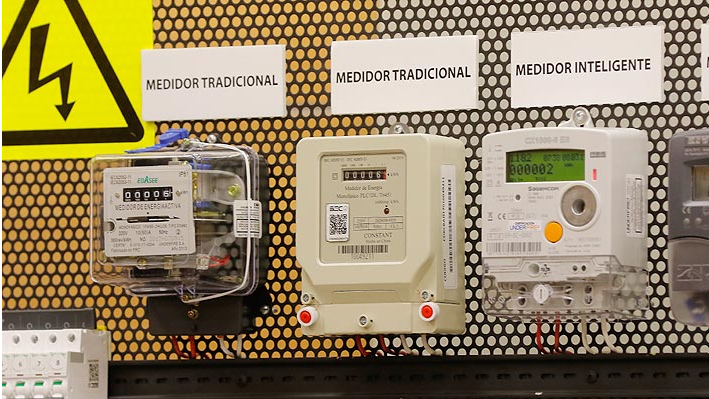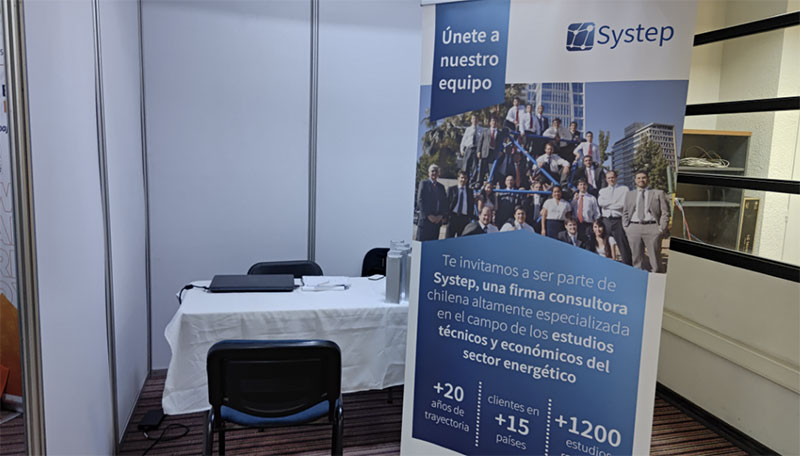
According to studies and experts, the main complication faced by countries with this technology is related to information privacy.
Controversy has arisen over the obligation of distribution companies to replace the old mechanical electric meters, currently installed, with intelligent devices throughout the country. It all started with the controversy that the cost of installing the new technology would be borne by the users, which the government is trying to alleviate with talks for the companies to generate incentives for the citizens, such as buying the old meters. Three firms agreed to do so, and agreed to pay $10,000 to customers who accept the change. To this were added yesterday the words of the former Minister of Energy during Michelle Bachelet’s second term in office, Máximo Pacheco, who assured that the companies “hit the President’s government hard” -when he was no longer Minister- with the approval of the regulation that establishes the mandatory nature of the change. The current head of Energy, Susana Jiménez, responded by assuring that “the former authorities cannot wash their hands of the matter”.
The debate generated by the entry of smart meters into the electricity system has not only taken place in Chile, as there have also been discussions in other countries where the initiative has already been implemented.
Data management
The main one, Humberto Verdejo, director of the Engineering Department of the University of Santiago, told Emol, is related to “data management”, since smart meters, by monitoring customers’ electricity consumption, allow indirect access to habits and behaviors such as when we are at home, when we get up or go to bed, and even when we turn on the washing machine.
In the Chilean case, said the expert, the idea that companies “are going to have information that could be sensitive for each of the consumers” is more of a myth resulting from the “poor communication management” that has been carried out on the subject. “The same rule that drove the installation of smart meters mandates that distribution companies be responsible enough to handle the use of data solely and exclusively for billing purposes.”
Europe and the United States
That said, he pointed to Europe, stating that in that continent the issue of installing smart meters “has been discussed for a very long time. It is not something new, it is already implemented. In fact, in Spain there are already flexible tariffs”, and he even stated that there is an agreement signed by the European Union in 2020 in which “the countries committed to introduce smart meter technology”.
“But the main barriers that exist to this day is the issue of data management,” he insisted. In the study released a few days ago by the consulting firm SystepThe report, entitled “Smart Meters: The Challenges of a Technological Change,” it notes that the European Union, 2011 had a total of 45 million smart meters, while the United Kingdom as of last year had 12 million and the United States had 2017 80 million such devices installed. “The challenges faced by these countries were mainly concentrated in the area of regulatory frameworks, which allow relevant changes to be made to benefit from the use of the new meters. The points addressed are: access to meter information, opening of new markets and quality of supply,” the document explains.
In relation to the privacy of information, the research indicated that in the European Union “the regulatory mechanisms determine that the client is the owner of the information provided by the meter and also has the power to define privacy profiles as he/she chooses”. “An example of this policy occurs in France, where distributors have access to customers’ daily measurements, however, in order to obtain more detailed information on an hourly basis, express permission must be requested from the customer,” the study notes.
Obligatory nature and experience in Latin America
In terms of the obligation of Chilean companies to change all the old meters, the case of Germany is different from the national standard, since in that country it was established that smart devices are only mandatory for customers who consume more than 6,500 kWh, and for those who are in the distribution generation system with power over 7 kW. In England, meanwhile, according to Systep’s general manager Rodrigo Jiménez, the changeover to a smart meter is “optional. If you want them to install the meter”, alluding to the fact that a similar measure should have been implemented in Chile. “It should not have been applied so massively. There are still many other issues in the regulation that need to be improved in order for these types of devices to have an effective contribution for the end customer,” he commented.
According to the study “Intelligent Energy: Experiences, costs and benefits, lessons for Chile” prepared by Fraunhofer Chile for Corfo in 2014, in Canada, for example, the reactions that the population has had to this initiative “has been mixed. Some groups have protested the smart meter installations based on their privacy and health concerns”. The initiative in Latin America is concentrated in Colombia, Mexico and Brazil. The latter contemplates an investment of US$36 billion until 2020 for the implementation of smart meters. “In Colombia and Brazil, the concept that has most generated the irruption of citizenship is related to data management,” Verdejo concluded.





